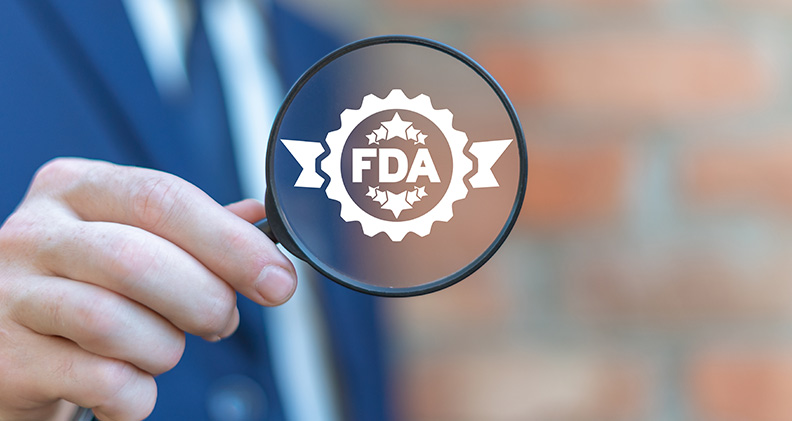Startups typically ask me, “When should I hire a patent attorney?” However, the more appropriate question is, “When should I hire an intellectual property attorney?” Entrepreneurs often mistakenly focus exclusively on patents to protect their ideas. Taking this narrow approach could hurt the long-term growth of the company. A startup may create other, more valuable IP than just patentable inventions. These additional assets may include know-how, trade secrets, copyrights and trademarks. Entrepreneurs shouldn’t short-change themselves when reviewing what assets their company possesses and the intrinsic value of these assets. Thus, the more accurate question when engaging a law firm to assist in protecting your crown jewels is, “When should I hire an intellectual property attorney?” The intellectual property (IP) attorney possesses the skill set to protect your diverse IP capital.
That brings us to the purpose of this article: Identifying best practices for engaging and working with an IP law firm.
The first step is to perform due diligence on the attorney and the firm. Contemplate the type of firm you want to work with. Is it a boutique firm or a department within a large general practice firm? Boutique firms are unique in that they have a singular focus on all things involving IP. Because of this, boutique firms may also possess a broader range of technology expertise (i.e., chemical, biotech, medical devices and computer science). Boutique firms also may be more flexible when it comes to client fee structure and billing practices, because they focus on one type of law.
IP departments within large, general-practice firms typically do not have the flexibility and latitude as boutique firms because of the overhead and the more diverse practice of law by the firm overall. Many times IP departments financially support other less profitable departments within a large firm, and therefore, cannot deviate from the large-firm billing practices. In addition, large-firm IP departments usually don’t possess a stable of practitioners with diverse technology backgrounds. This may cause issues later, as attorneys are required to perform work outside of their educational training. Large firms can help with the one-stop shopping model (e.g., do your corporate tax, IP, etc.). However, be careful of falling for the pitch, “If you let us do your corporate work, we will give you a discount on your IP work.” This may sound good at the onset, but likely will result in your IP work performed by an inexperienced practitioner who has a lower billing rate, giving the illusion of a “discount.”
As part of your due diligence, a best practice tip is to sit down with the IP practitioner who will head your retainment and discuss parameters and expectations of the prospective engagement. Sample questions to ask at this meeting include:
- Who will be performing the work?
- Will you require a retainer?
- How long will the projects take?
- Will the billing be on a per-hour basis or fixed fee?
- Will the firm provide status reports?
- Will the attorney meet with the inventors?
- Can the firm help with portfolio management?
- Can you assist with monetizing the portfolio?
- What is involved in long term maintenance, docketing, etc.?
Once these questions have been answered to your satisfaction and the law firm is chosen, focus on how to maximize this relationship while running your business at the same time. The most critical best practice to employ when engaging an IP firm is to be focused and prepared when meeting with the IP practitioner. This is so important, because most attorneys charge on an hourly basis. Therefore, the more detailed information you can provide on the IP that you want protected, the more you will keep your costs in check.
A good plan for patent application filing looks at the IP categories and provides best practices for each of these as they relate to working with the IP firm. Take the time to complete an invention disclosure form (hopefully your attorney has provided this), and give the practitioner as much detail on the how, why and when of your invention. Provide a high level of specificity on the invention to cut down on the back and forth between the inventor and the practitioner. Below, I have listed several specific practices to follow when working with the IP firm on patent prosecution matters.
- Provide electronic models (i.e. drawings) of the invention.
- Complete in detail the invention disclosure form (ask the practitioner to provide you this form).
- Keep a detailed notebook on the invention, including improvement, and discuss these with the practitioner. The notebook
serves as historical documentation of the invention. - Review the proposed application or response to an Office Action in a timely manner. Inventor input on all Patent Office
submissions is critical. - Identify all inventors and make sure employment agreements are in place to
ensure ownership transfer to the corporate entity. Remember, to build value in - the startup company, all assets need to be owned by it.
- Identify your competitors, and keep your IP attorney informed of what products
they are developing so appropriate patent searches can be performed to provide
timely market intelligence to you. - Have a patent filing strategy in mind, including what foreign countries your may
want to file in.
Another area of IP that you can exploit when working with a law firm is trademarks. This conversation has a different focus because of the branding importance of trademarks. Remember, consistent use and uniqueness of the trademark is important to establish a strong brand presence for the product in the market. With these parameters in mind, suggested best practices for working with your trademark attorney may include:
- Before filing an application, your trademark attorney should perform a knockout search so you don’t waste money on filing an application for a mark someone else owns.
- Track first use of your mark, and communicate this to your trademark attorney.
- Review your proposed product packaging and package insert with your trademark attorney before production. Packages may be used as specimens for filing your application.
- Request that your attorney compile a trademark catalog for all of your products.
- Institute a trademark policing process to allow your attorney to check for possible competition infringement.
- Generate a trademark use manual to ensure proper corporate-wide use, so no issues arise at renewal time.
Working with your IP attorney with copyrights is a bit trickier, because copyrights are created every day during the operations of either a startup or long established company. Keeping track of these assets and deciding which ones to register can be overwhelming. Examples of best practices for coordinating the protection of your copyrights with your IP firm include the following:
- Execute “work-made-for-hire” agreements that transfer all ownership rights from the employee to the company.
- Create an in-house copyright catalog to track these assets.
- Put in place in-house registration parameters and categories to assist with the registration process.
- Complete registration questionnaires provided by your IP attorney.
- Identify potential competition infringements for IP attorney monitoring.
Working with your IP law firm on the fourth and final type of IP asset, trade secrets, can be difficult, because your IP firm is not present at your facility every day. It is up to you to identify what list, process, procedure or formula will be kept as a trade secret. Once identified, you need to do the following:
- Identify early what you want to keep as a trade secret, and talk to your IP attorney about what you have to do to accomplish this designation.
- Once identified, have your IP attorney monitor your secrecy steps so there are no surprises if the company ever has to litigate.
- Create a central depository that lists all of the company’s trade secrets.
- Make all employees sign a confidentiality agreement on the day they are hired.
- Institute a procedure wherein if an employee leaves the company, they sign a document acknowledging the existence of any trade secrets and the promise to keep them secret.
- Monitor ex-employees who take a position with a competitor to identify whether these secrets are being misappropriated.
In summary, if one wanted a short list on the best practices to engage and work with an IP law firm, they would be:
- Organized;
- Able to provide as much detail as possible to the practitioner; and
- Clear with your budget and time expectations.
This article was written for informational functional purposes only and should not be interpreted as legal advice. Please consult with a licensed patent attorney if you have any questions.
John W. Boger is a partner with the boutique Intellectual Property Law Firm of Heslin Rothenberg Farley & Mesiti P.C. and is Chairman of the firm’s Medical Products and Technology Practice Group. Before attending law school, Mr. Boger worked for eight years with a large orthopaedic device manufacturer in various product development and marketing positions. He can be reached at 518-452-5600 or by email.
Heslin Rothenberg Farley & Mesiti P.C.
www.hrfmlaw.com




